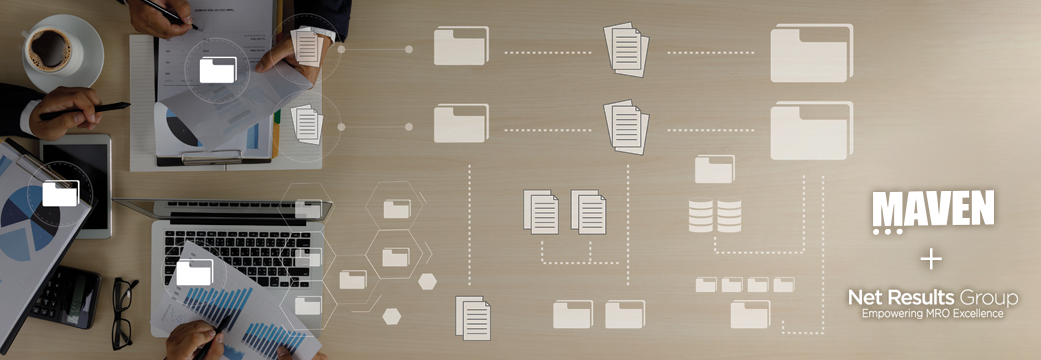This article was co-authored with Net Results Group to start the conversation about the importance of data quality.
Every minute, an MRO engineer or procurement manager makes a decision based on flawed data – even if it has been cleansed. How is this possible? In asset management, data errors creep in when many stakeholders manage their EAM systems, which are often dispersed across many locations and facilities.
You now may be asking yourself, is my data 100% trustworthy? Is my data in my EAM accurate? It could be time to do a serious health check on your data.
Data is one of the most important types of information in our world today. It’s collected, shared, analyzed, and visualized. The strategic use of data helps organizations understand and improve their business processes and allows them to reduce waste, in both time and money. However, not all data is created equal. Unorganized data, or “dirty data,” doesn’t provide much value and represents missed opportunities.
One possible issue of unorganized data is that it is stored in a variety of systems and enterprise applications. In many organizations, multiple employees enter items into various systems, using different languages, and little to no standard guidelines. Each of these data sources can have improper values, outdated and duplicate records, and inconsistent standards across customers, products, financials, and more. Over time, the lack of standardization causes data to become inconsistent, unreliable, and dirty, creating a major roadblock for maintenance and procurement.
With uncontrollable economic factors and shrinking budgets, there is no room for error. Lean manufacturing and operational excellence demands the best in efficiency, cost savings, and performance. Simply stated, companies must do more with less while increasing output to improve the bottom line.
What is the solution? Data governing and data cleansing.
In a State of Data Governance Survey*, 48% of respondents reported data governance improves decision-making, operational efficiency, or both. Data governance is the process of managing the availability, usability, integrity, and security of data in enterprise systems. Successful data governance ensures that data is consistent and trustworthy. It is critical as organizations rely more and more on data analytics to help optimize operations and drive business decision-making.
While data governance is a core component of data management, organizations need to focus on cleansing of dirty data too.
Master data plays a critical role in the overall maintenance of facilities and operations. As asset-intensive organizations continue to grow and evolve, so does the volume of data stored within an EAM system. With potentially thousands of legacy records stored in an existing item master and new entries being made daily, improving data quality, and changing traditional processes can be a tedious task.
Data cleansing is necessary for any organization. Data cleansing is defined as the process of analyzing, correcting, and standardizing inaccurate data within a dataset. The data-cleansing process combines automated software and manual efforts to deliver clean data. All data should be tailored to the unique requirements of the company and industry; failure to do so may result in mediocre data quality.
The first step in a data-cleansing project involves performing a detailed data evaluation to assess the state of your EAM program, to establish a baseline for key performance indicators (KPIs) and determine project requirements. During the evaluation, the data condition in your system will be reviewed. The results of the data evaluation will be presented to you in a report that includes a roadmap for improvement.
Small changes can yield large results. By evaluating your asset management program, you can learn if you are unlocking its full potential. Let us help you define a focused roadmap for improvement. Implementing a data-cleansing initiative may be one of the best decisions your company can make. It will save a great deal of time, stress, and money, in addition to helping reduce failed projects due to poor or unreliable data. In partnership with Net Results Group, we can help you get to the best practices for data cleaning, data governance, and continuous improvement – no matter where you are on your data journey. Discover how Net Results Group and Maven Asset Management can support you and your data.
Article Reference:







